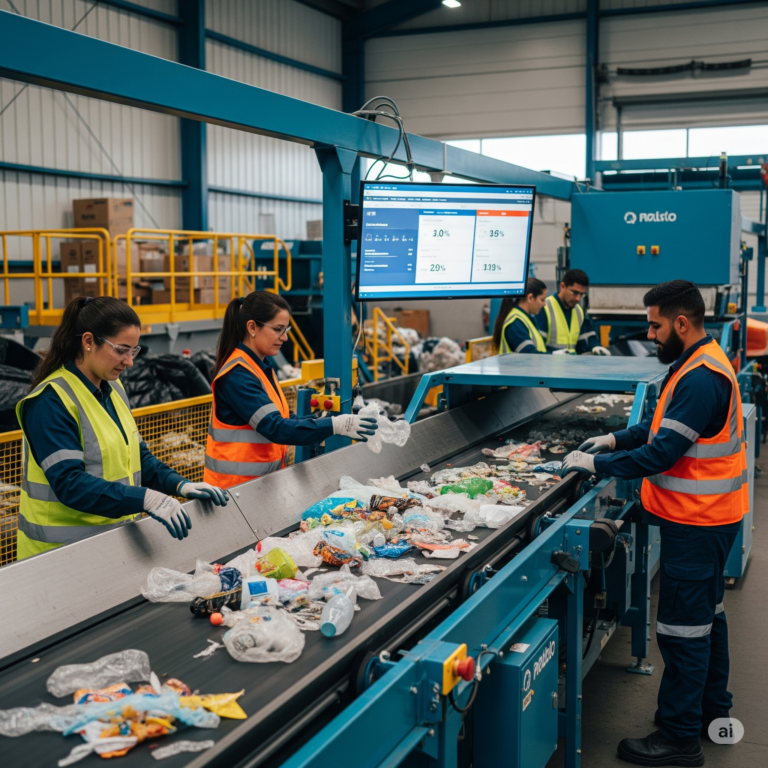In today’s fast-paced digital world, customer expectations are constantly evolving. Consumers demand immediate responses, personalized experiences, and 24/7 availability. To meet these growing demands, businesses are increasingly turning to artificial intelligence (AI) to revolutionize their customer service operations. Intelligent virtual assistants (IVAs) are emerging as a powerful tool, transforming how businesses interact with customers and enhancing the overall shopping experience.
What are Intelligent Virtual Assistants?
Intelligent virtual assistants, also known as chatbots or conversational AI, are computer programs designed to simulate human conversation. These sophisticated systems leverage natural language processing (NLP), machine learning, and other AI technologies to understand and respond to customer inquiries in a human-like manner. IVAs can be deployed across various channels, including websites, social media platforms, mobile apps, and messaging services.
Types of AI in Customer Service
- Rule-based chatbots: These chatbots follow a predefined set of rules and scripts to respond to customer queries. They are suitable for handling simple, repetitive tasks such as answering frequently asked questions (FAQs) and providing basic product information.
- AI-powered chatbots: These chatbots utilize machine learning algorithms to learn from past interactions and improve their responses over time. They can understand complex queries, engage in more natural conversations, and provide personalized recommendations.1
- Voice assistants: These AI-powered assistants, such as Amazon Alexa and Google Assistant, enable customers to interact with businesses using voice commands.
Benefits of AI in Customer Service
The implementation of AI in customer service offers numerous benefits for both businesses and consumers:
For Businesses:
- 24/7 Availability: IVAs can provide round-the-clock support, ensuring that customers can get assistance whenever they need it, regardless of time zones2 or holidays.
- Cost-Effectiveness: Automating routine customer interactions can significantly reduce the need for human agents, leading to lower operational costs.
- Increased Efficiency: IVAs can quickly and efficiently address a large volume of inquiries, freeing up human agents to focus on more complex issues that require human intervention.
- Improved Customer Satisfaction: By providing immediate and personalized assistance, IVAs can enhance customer satisfaction and loyalty.
- Data-Driven Insights: AI-powered chatbots can collect valuable data on customer interactions, which can be analyzed to identify trends, improve products, and optimize customer service strategies.
For Consumers:
- 24/7 Accessibility: Customers can get help whenever they need it, without waiting for business hours.
- Quick Responses: IVAs can provide instant answers to frequently asked questions, eliminating the need to wait on hold.
- Personalized Experiences: AI-powered chatbots can provide personalized recommendations and offers based on individual customer preferences.
- Improved Customer Support: IVAs can assist with a wide range of tasks, from order tracking and returns to troubleshooting and technical support.
- Seamless Omnichannel Experience: IVAs can provide a consistent customer experience across multiple channels, ensuring a seamless and integrated journey.
Case Studies and Examples
- Retail: Many e-commerce companies, such as Amazon and Sephora, utilize chatbots to answer customer queries, provide product recommendations, and assist with order tracking.
- Banking: Banks are increasingly using AI-powered chatbots to help customers with account inquiries, transactions, and troubleshooting.
- Healthcare: AI-powered chatbots can provide basic medical information, schedule appointments, and remind patients about medication schedules.
- Travel: Travel companies use chatbots to assist customers with booking flights, hotels, and rental cars, and to provide travel advisories.
Challenges and Solutions
Despite their numerous benefits, AI-powered customer service solutions also present some challenges:
- Technical Limitations: Current AI technology may not be able to handle complex or nuanced customer inquiries, leading to frustration and a negative customer experience.
- Data Privacy Concerns: Collecting and using customer data for AI-powered chatbots raises concerns about data privacy and security.
- Lack of Human Connection: While IVAs can handle many routine tasks, they may lack the human empathy and emotional intelligence required to address complex customer issues.
To address these challenges, businesses must:
- Invest in continuous research and development: Continuously improve AI algorithms to enhance natural language understanding and improve the overall customer experience.
- Prioritize data privacy and security: Implement robust data security measures and ensure compliance with relevant data privacy regulations.
- Combine AI with human support: Integrate IVAs with human agents to provide a seamless and efficient support experience.
- Focus on customer experience: Regularly monitor customer feedback and make necessary adjustments to ensure that IVAs are meeting customer expectations.
Future Trends in AI and Customer Service
- Increased use of voice assistants: As voice technology continues to evolve, we can expect to see a significant increase in the use of voice assistants for customer service interactions.
- Hyper-personalization: AI will be used to create hyper-personalized customer experiences, tailoring interactions to individual customer preferences and needs.
- Proactive customer support: AI-powered systems will be able to proactively identify and resolve customer issues before they arise.
- Integration with other technologies: AI will be integrated with other technologies, such as augmented reality and virtual reality, to create more immersive and engaging3 customer experiences.
Conclusion
AI is revolutionizing customer service, enabling businesses to provide faster, more efficient, and more personalized support to their customers. By leveraging the power of AI-powered virtual assistants, businesses can enhance customer satisfaction, build stronger relationships, and gain a competitive advantage in the marketplace. As AI technology continues to evolve, we can expect to see even more innovative and transformative applications in the realm4 of customer service, further enhancing the customer experience and shaping the future of business interactions.
Frequently Asked Questions (FAQs)
- What is an intelligent virtual assistant?
- An intelligent virtual assistant (IVA) is a computer program designed to simulate human conversation. It uses AI technologies like natural language processing to understand and respond to customer inquiries.
- How does AI improve customer service?
- AI improves customer service by enabling 24/7 availability, increasing efficiency, reducing costs, enhancing customer satisfaction, and providing personalized experiences.
- What are the benefits of AI for customers?
- Benefits for customers include 24/7 accessibility, quick responses, personalized experiences, improved support, and a seamless omnichannel experience.
- Can AI replace human customer service representatives?
- While AI can automate many tasks, human agents are still crucial for handling complex issues, building relationships, and providing emotional support.
- What technologies are used in AI customer service?
- Natural language processing (NLP), machine learning, deep learning, and voice recognition are some of the key technologies used.
- How can businesses implement AI in their customer service strategy?
- Businesses can implement AI by integrating chatbots on their websites, social media platforms, and mobile apps, and by deploying voice assistants for customer interactions.
- What industries can benefit most from AI in customer service?
- Industries such as retail, e-commerce, banking, healthcare, and travel can significantly benefit from AI-powered customer service.
- Are there any drawbacks to using AI in customer service?
- Challenges include technical limitations, data privacy concerns, and the potential lack of human connection.
- How does AI understand customer queries?
- AI uses natural language processing techniques to understand the meaning and intent behind customer queries, even when they are phrased in different ways.
- What role does machine learning play in customer service AI?
- Machine learning enables chatbots to learn from past interactions, improve their responses over time, and provide more personalized experiences.
- Can virtual assistants personalize shopping experiences?
- Yes, AI-powered chatbots can personalize shopping experiences by providing product recommendations, tailoring offers, and answering questions based on individual customer preferences.
- How do customers feel about interacting with AI?
- Customer attitudes towards AI vary, with some preferring human interaction while others appreciate the convenience and efficiency of AI-powered support.
- What future advancements can we expect in AI customer service?
- Future advancements include increased use of voice assistants, hyper-personalization, proactive customer support, and integration with other technologies like AR/VR.
- How are data privacy concerns addressed with AI in customer service?
- Businesses must prioritize data security and ensure compliance with relevant data privacy regulations, such as GDPR and CCPA.
- What are the cost implications of implementing AI in customer service?
- Initial investment costs may include developing and implementing AI-powered chatbots and training staff. However, long-term benefits include reduced operational costs and increased efficiency.
This article provides a comprehensive overview of AI in customer service, highlighting its potential to revolutionize how businesses interact with their customers. By embracing AI technologies and addressing the associated challenges, businesses can enhance customer satisfaction, build stronger relationships, and gain a competitive advantage in the ever-evolving digital landscape.












+ There are no comments
Add yours